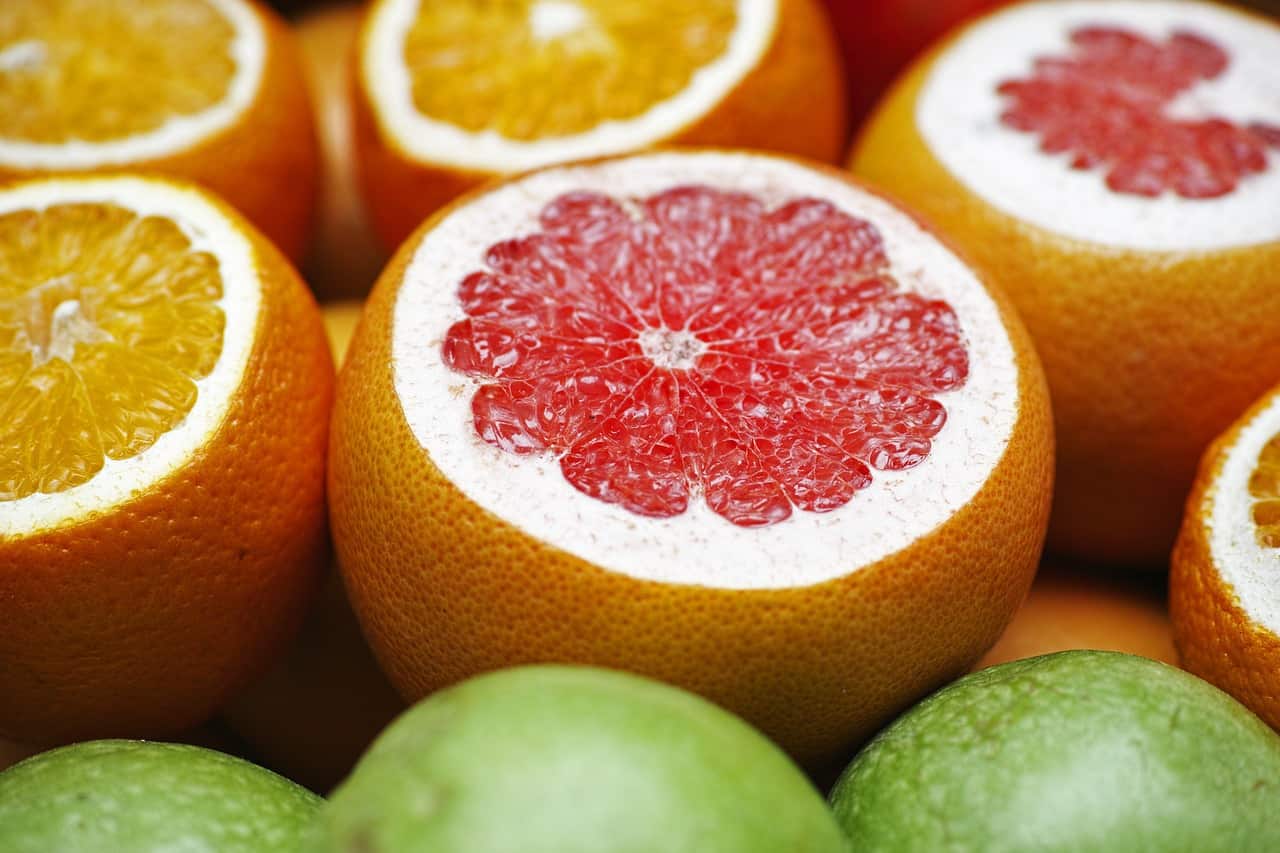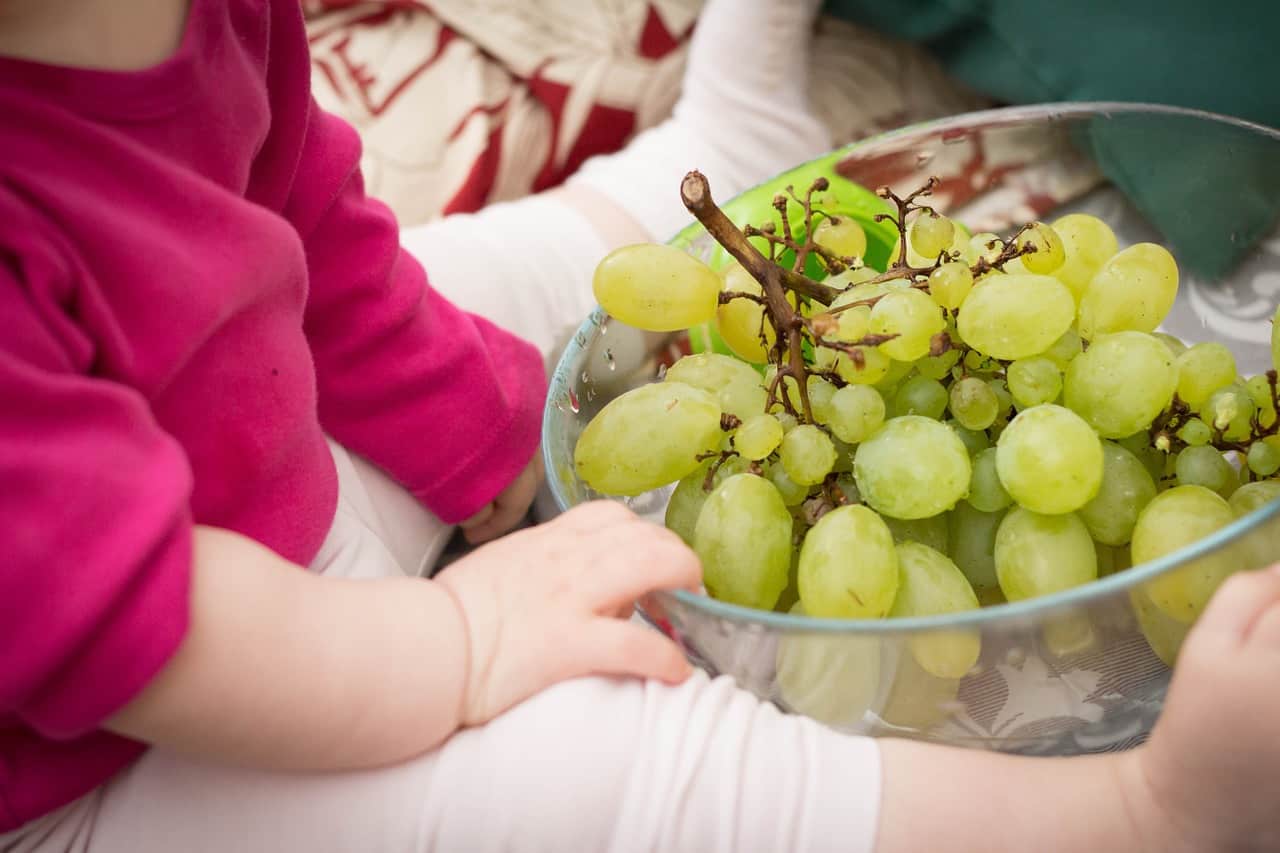When Can Babies Have Citrus Fruits and How To Introduce Them
They’re bright, they’re fruity, and they’re tangy. Citrus fruits are a classic in different parts of the world. And you’ll know them for their punchy sweet and sour taste.
Citrus fruits are known for having a thick leathery rind on the outside and a juicy pulp on the inside. Citrus fruits are mostly produced in tropical and subtropical places. You’ll find plantations in countries like Spain, Brazil, China, the US, Mexico, and India.
Some of the most common citrus fruits include orange, lemon, lime, grapefruit, and pomelo. People can eat these fruits as is by peeling them and eating the pulp. But people can also enjoy citrus fruits as juices, candy, or desserts.
Citrus fruits are not only tasty, but they are good for your body too. They provide the body with a lot of nutrients that are hard to live without.
So the question now is can a baby have citrus fruits? And when is it safe to introduce citrus fruits to them? All that and more as we go through this article.
Citrus: The Benefits and The Drawbacks
Before feeding citrus to your bundle of joy, we first need to talk about the benefits and drawbacks. Like other first food, you want to know if it’s good for them or not. Thankfully, citrus fruits are very healthy.
Citrus fruits are best known for delivering your daily dose of vitamin C. Vitamin C helps strengthen the immune system, fight off diseases, and can give your baby smooth and radiant skin. Citrus fruits are also riched in other vitamins, minerals, fiber, and antioxidants.
Citrus fruits are linked to a lot of health benefits. These include lowered risk of kidney stones, prevention of cancer, heart health, and protection of the brain. These benefits can greatly improve your baby’s health in the long run.
But while citrus fruits are very healthy, they can have some drawbacks. Citrus fruits usually don’t cause allergies. However, they are very acidic.
Unlike adults, young children have sensitive stomachs. Some children may have reactions to acidity, such as diaper rashes and redness around the mouth. Babies with acid reflux can also experience upset stomach and bloating.
The fruits’ membrane can also be a choking hazard. That’s why parents must be careful when serving citrus to their kids. Make sure you slice your fruits and remove the membrane for your infants.
Finally, some parents might want to give their baby citrus juice. While juices are not inherently bad, commercialized juices are full of sugar and additives. Too much consumption can lead to health problems like cavities and obesity.
When Can Babies Have Citrus Fruits?
So when is it safe for babies to eat citrus fruits? Normally, children can start eating solid food at around 6 months. But for citrus fruits, it’s highly recommended to wait until they are 12 months old.
Citrus fruits like oranges are a little harder to chew, unlike bananas or peaches. It’s a good idea to wait until your child has developed the pincer grasp so they can better hold their food. You should also wait until your baby can chew and swallow food with ease.
You also want to keep an eye on your child’s reaction when eating citrus. Watch out for signs of acid reflux or allergies when they first consume citrus fruits. You should also consider your family’s history of acid reflux before feeding your child citrus.
How To Serve Citrus Fruits Safely to Babies?
Unlike other fruits, it’s a little harder to puree citrus fruits like oranges. So instead, you can serve citrus fruits like oranges as bitesize slices to your kid. Don’t forget to remove the membrane and the seeds.
Turning your fruits into juice is also another good option. We don’t recommend store-bought juices since they are full of preservatives and sugar. So have a little bit of elbow grease and squeeze some fresh juice for your baby.
You can also serve citrus fruits with other fruits, vegetables, and meats. You can find good recipes on Mom Junction right here.
Alternative Source for Vitamin C
Citrus fruits are well-known sources of vitamin C. However, if your baby has allergies, acid reflux, or a dislike for citrus fruits, then there are alternatives for them.
Some non-citrus fruits are rich in vitamin C. These include kiwi, melon, berries, guava, and papaya. Asides from vitamin C, these fruits are also loaded with other nutrients that can help boost your baby’s growth and development.
Certain vegetables are also a good source of vitamin C. You can rely on pepper, leafy greens, potato, and peas to give you some good ol’ vitamin C. Like fruits, they are also rich in other vitamins and minerals.
So you don’t have to worry if your baby does not like citrus fruits. You can still give them ample vitamin C from other non-citrus fruits. They’ll be fine when they eat a balanced diet with these foods on their plate.
Conclusion
Citrus fruits like orange, lemon, and lime are found in almost every country. And they are popular for a good reason. Citrus fruits are a part of a lot of cuisines, ranging from side dishes to desserts.
Citrus fruits are great, both in terms of taste and nutritional value. That’s why parents want to introduce these fruits to their kids as early as possible. Fortunately, you can feed citrus fruits to your kid at an early age.
However, acidity can be a downside when trying to introduce citrus to babies. Instead of rushing, parents can slowly integrate citrus into different foods. In the case of acid reflux, though, it’s better to find a different fruit.
And thankfully, other great fruits are also rich in vitamin C. So while citrus fruits are famous for being rich in vitamin C, they don’t have a monopoly over that nutrient. You can easily find vitamin C in foods like strawberries, kiwis, potatoes, and leafy greens.
But if your kid can eat citrus fruits, then that’s great! Let your kid enjoy the tart taste of citrus all they want. Best of all, they won’t be having scurvy anytime soon.










